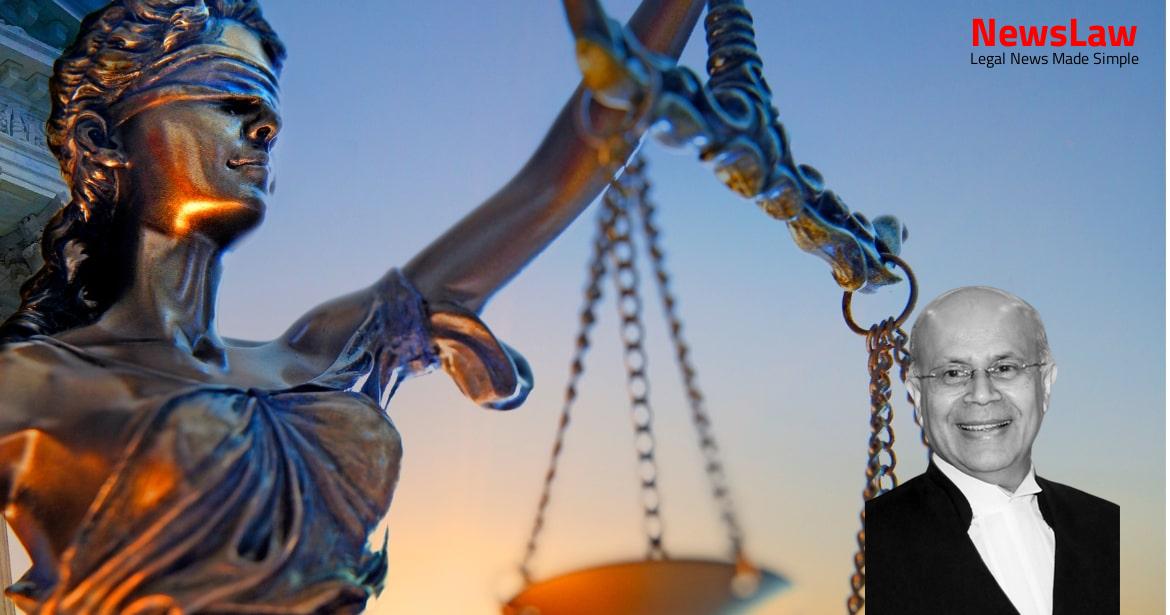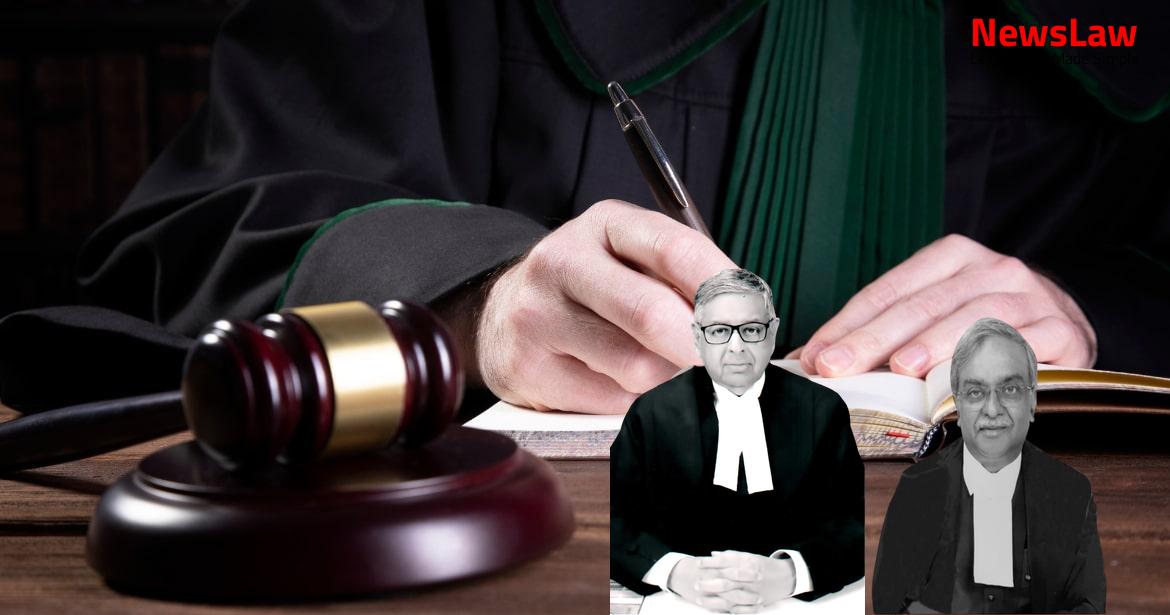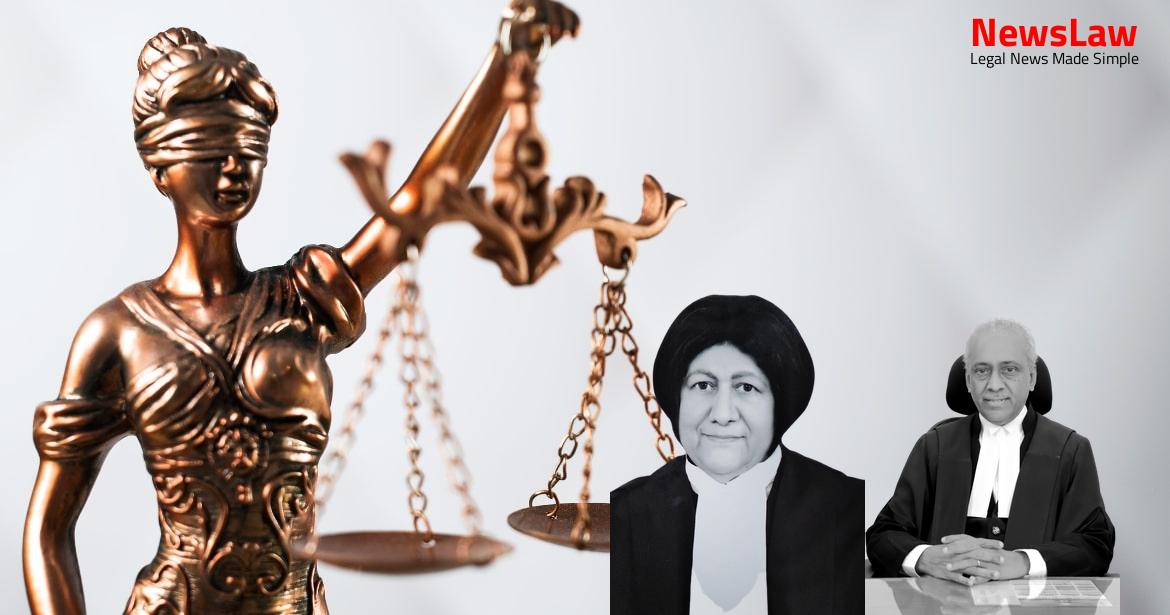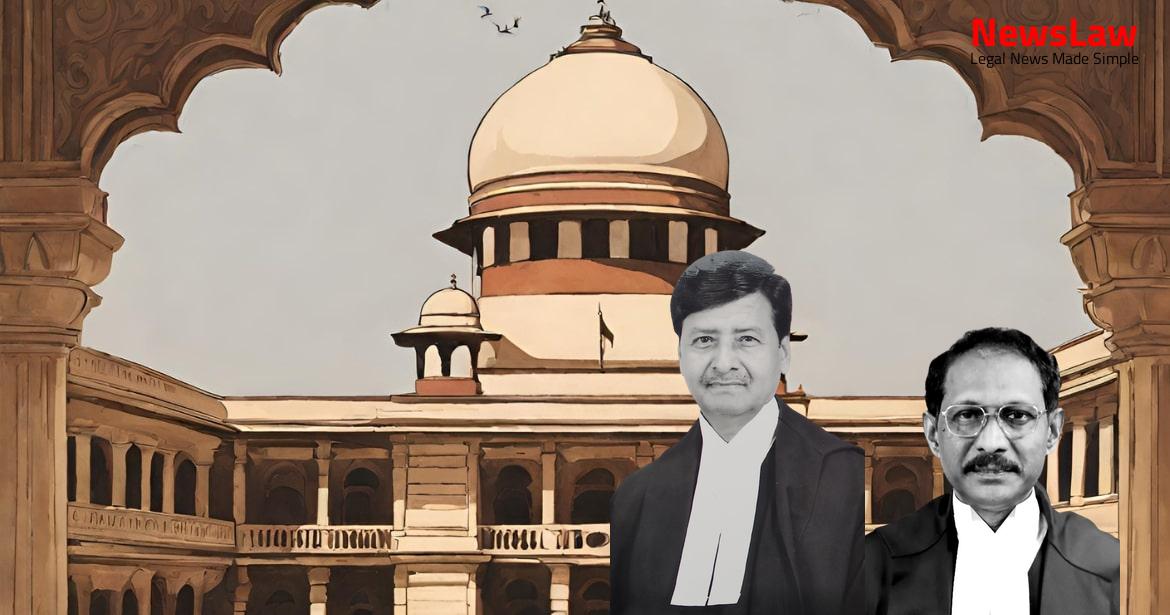Explore the intricate legal analysis surrounding vicarious liability in a recent motor vehicle accident case. Delve into the nuances of ownership and control as the court determines liability in such cases. Stay informed about the evolving legal landscape in motor vehicle accident litigation.
Facts
- Death occurred to a 45 year old who was on a cycle and hit by a bus on 16.08.2001.
Also Read: Legal Analysis on Physical Ability in Rape Case
Arguments
- The insurance company argued that the bus involved in the accident was under the control of the RSRTC at the time of the incident.
- The insurance company contended that the liability to pay compensation rested with the RSRTC and not with the insurance company.
- The judgment in Kailash Nath Kothari is deemed distinguishable as it pertains to a situation where the insurance company claimed that the RSRTC was liable for the compensation due to the bus being under their control at the time of the accident.
Also Read: Legal Analysis on Admissions and Document Consideration in Insolvency Case
Analysis
- The liability of the ‘owner’ is vicarious for the tort committed by its employee during the course of his employment.
- The definition of ‘owner’ under Section 2(19) of the Act is not exhaustive and must be construed in a wider sense based on the facts of each case.
- In a specific case, the RSRTC was held vicariously liable for the tort committed by the bus driver under its contract.
- The liability to have compulsory insurance as an owner is only in regard to third parties, not to property.
- In this case, it was determined that the insurance company’s liability was limited to the amount already paid, as the services and control of the driver were transferred to RSRTC.
- The passengers’ privity of contract was with the RSRTC, making the safety of the passengers the responsibility of the RSRTC while traveling on the bus.
- The ownership of a vehicle may not be limited to the registered owner only, especially in cases where the hirer has actual possession and control of the vehicle.
- Section 146 of the Act does not require a separate insurance policy for individuals using the vehicle with the owner’s consent.
- The MACT determined that the accident resulted from the negligent driving of the bus driver hired by the appellant-Uttar Pradesh State Road Transport Corporation.
- The liability for the accident was placed on the RSRTC as they had control and direction over the driver under the agreement.
- The appeal concluded that the sum awarded by the MACT was to be payable only by the Insurance Company within a specified period.
- The meaning of ‘owner’ must include the person with actual possession and control of the vehicle and under whose directions the driver operates the vehicle.
- The First party (Petitioner Corporation) is not liable for the fault, negligence, accidents, or illegal acts of the driver according to the agreement.
- Subsequent judgment in Uttar Pradesh State Road Transport Corporation v. Kulsum dealt with the question of liability in case of an accident involving an insured vehicle plying under a contract with the Corporation.
- The definition of ‘owner’ under the Motor Vehicles Act, 1988, and the 1939 Act were compared.
- The judgment emphasized that the Corporation, not the owner, was responsible for paying compensation in the specific case.
- The argument that UPSRTC devolved the responsibility of payment of compensation was made by the Insurance Company’s counsel citing Rajasthan State Road Transport Corporation v. Kailash Nath Kothari 1997.
- The agreement between the Corporation and the vehicle owner indicated that the Corporation effectively controlled the bus and would be considered the owner for that period.
- The law regarding compulsory insurance for the benefit of third parties was discussed.
- Emphasis was placed on the employer’s responsibility for the actions of the employee, as per the contract between the Corporation and the bus owner.
- The argument based on Clause 10 of the agreement was addressed, stating the liability for compensation lay with the owner or Insurance Company under the Act, not the Insurance Company alone.
- The MACT awarded compensation of Rs.1.65 lakhs, holding that only the Corporation, not the insurance company, was liable to pay the entire amount.
- The judgment distinguished the case of Rajasthan State Road Transport Corporation v. Kailash Nath Kothari based on the changes in the definition of ‘owner’ in the old Act and the present Act.
Also Read: Analysis of Transfer of Winding Up Proceedings to NCLT
Case Title: U.P. STATE ROAD TRANSPORT CORPORATION Vs. RAJENDRI DEVI (2020 INSC 417)
Case Number: C.A. No.-002526-002526 / 2020



